Abstract
“Interteaching” is an arrangement for college classroom instruction that departs from the standard lecture format and offers an answer to criticisms commonly directed at behavioral teaching techniques. This approach evolved from exploratory use of small-group arrangements and Ferster and Perrott's (1968) “interview technique,” leading ultimately to a format that is organized around focused dyadic discussion. Specific suggestions are offered that might enable both seasoned and novice instructors to incorporate this or similar arrangements into their classrooms. This approach retains some key characteristics of Keller's personalized system of instruction and precision teaching, but offers greater flexibility for strategies that are based on behavioral principles.
Keywords: applied behavior analysis, education, instruction, interviewing, PSI, precision teaching, reciprocal peer tutoring
Full text
PDF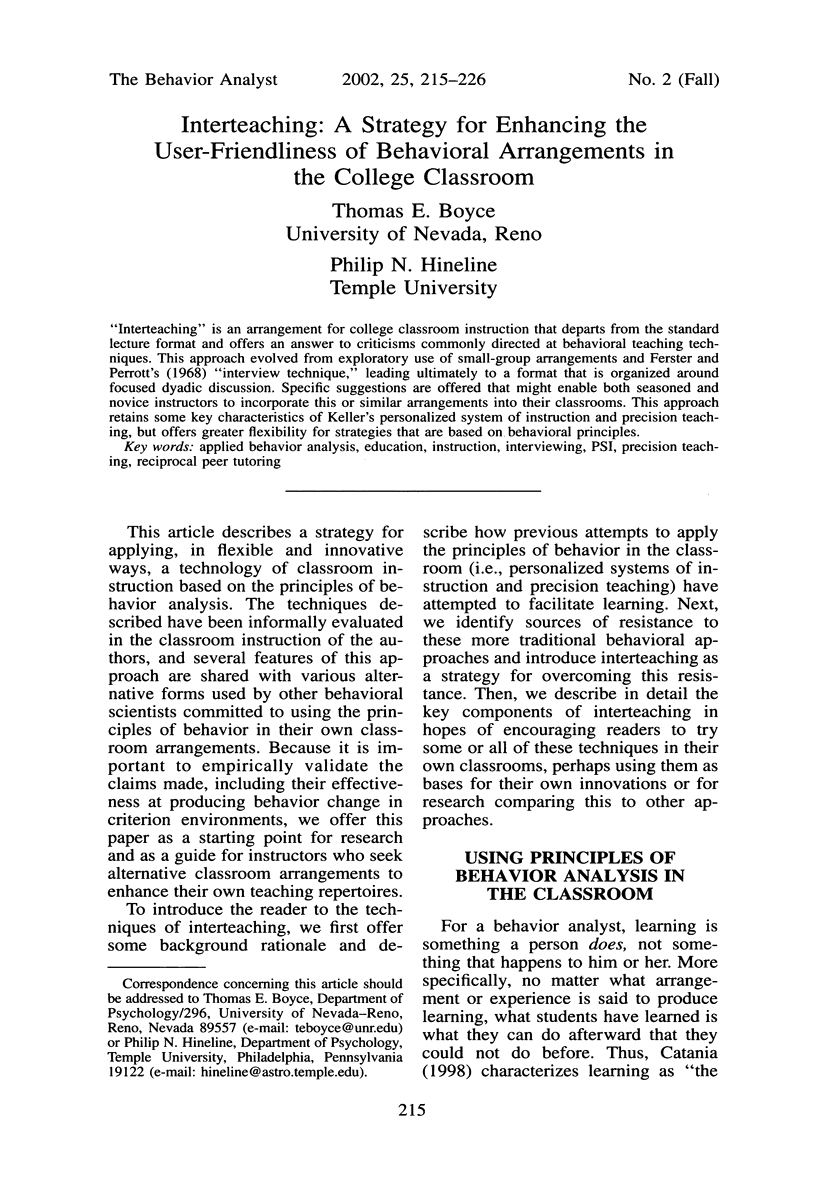
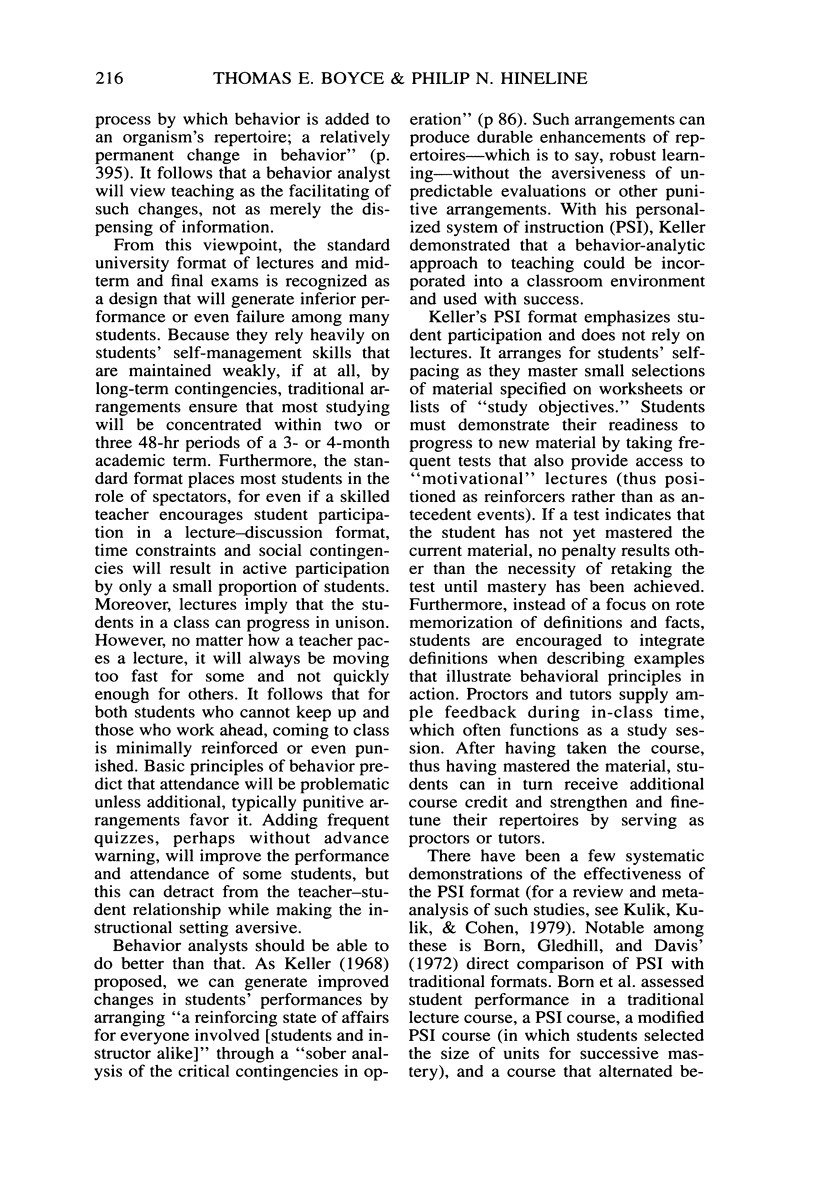
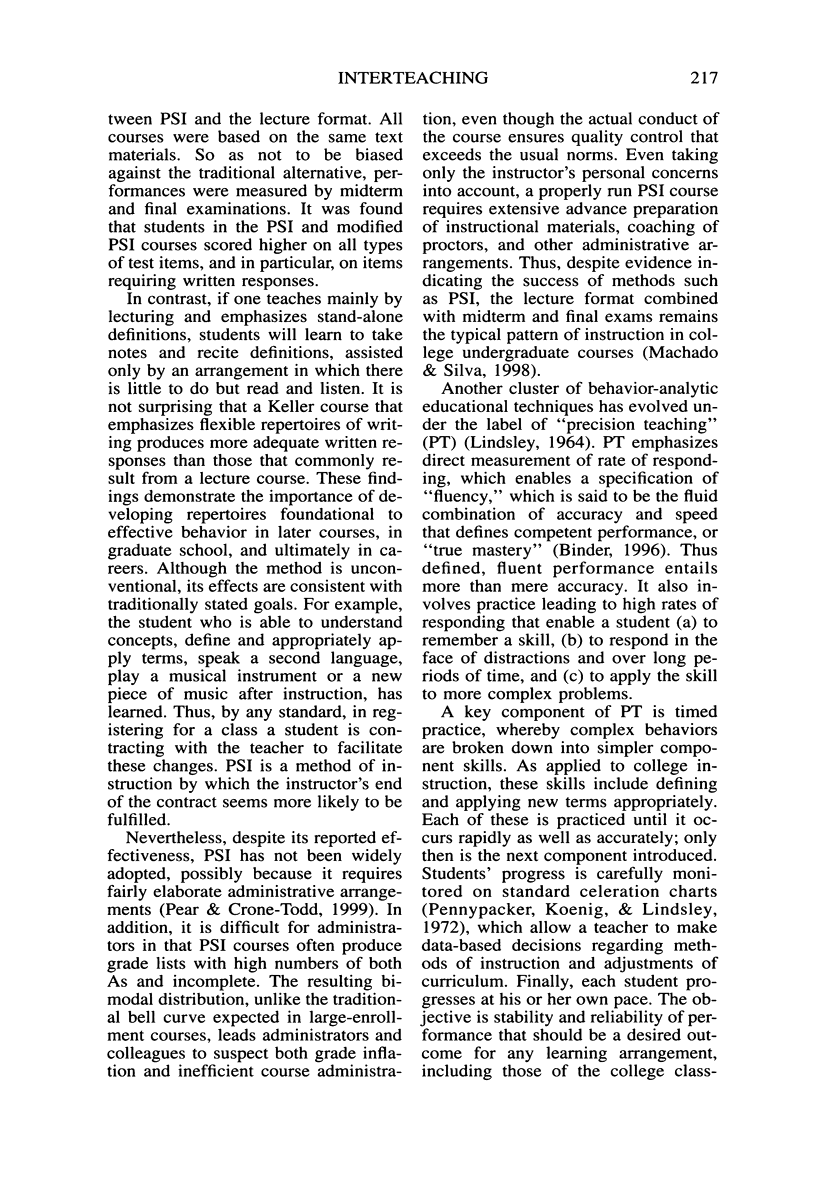
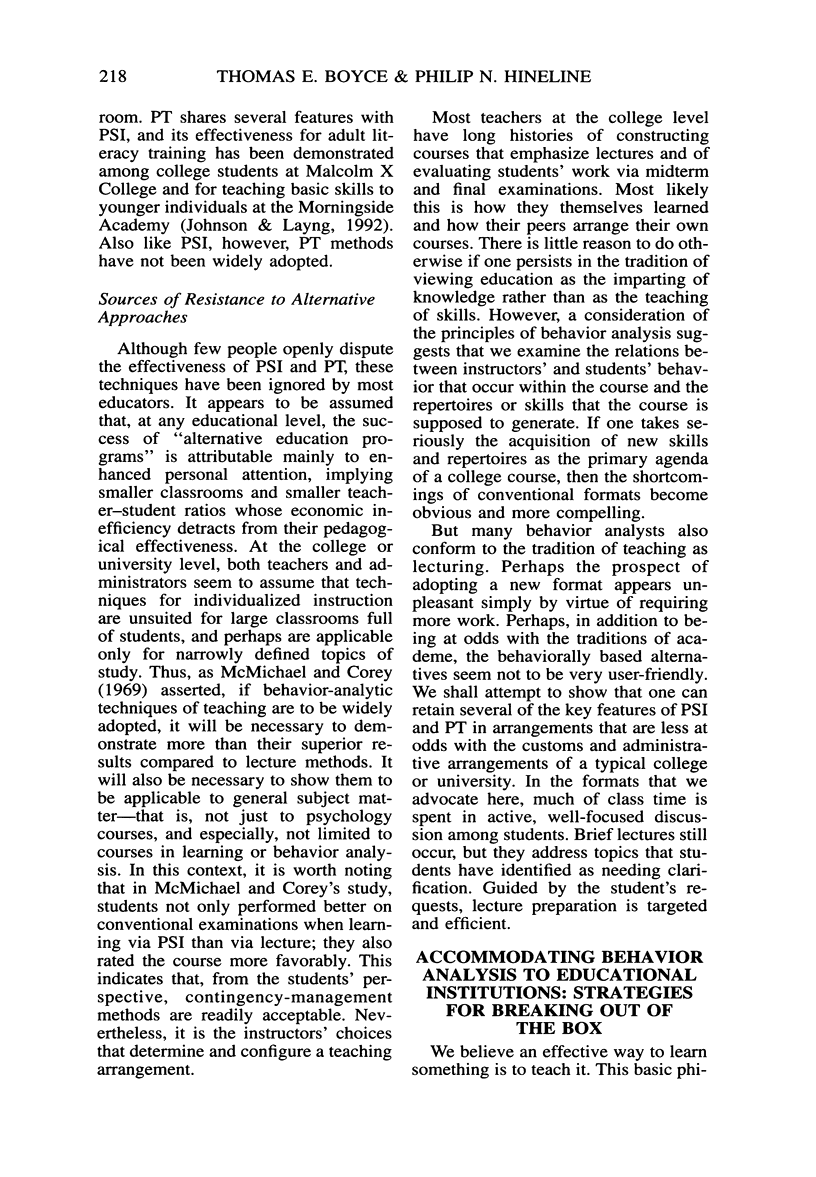
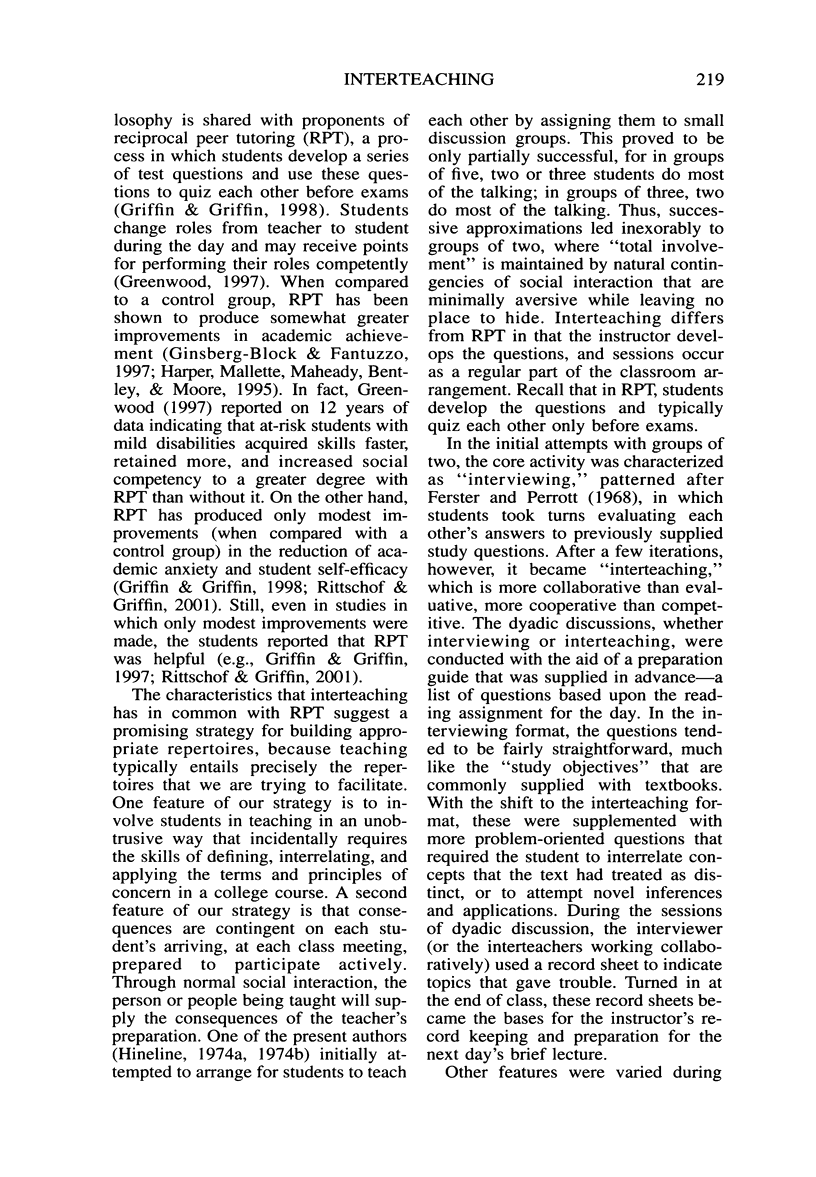
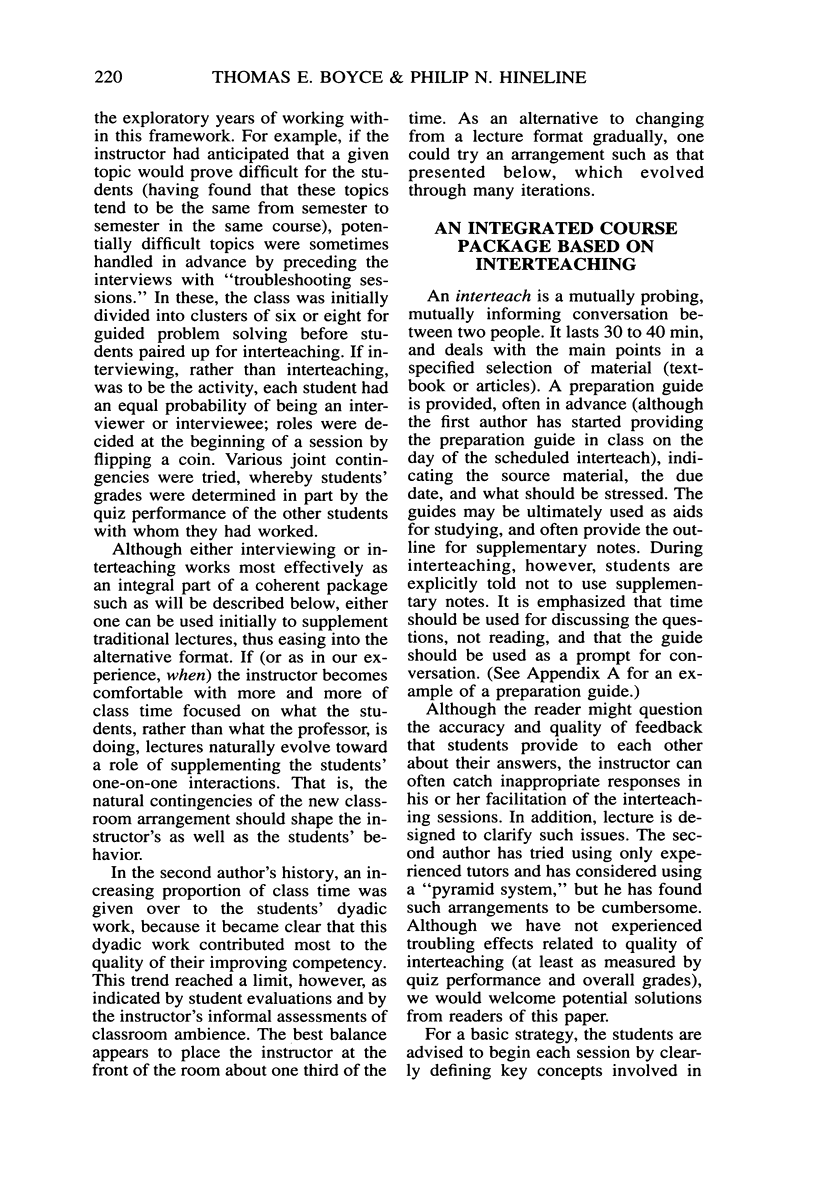

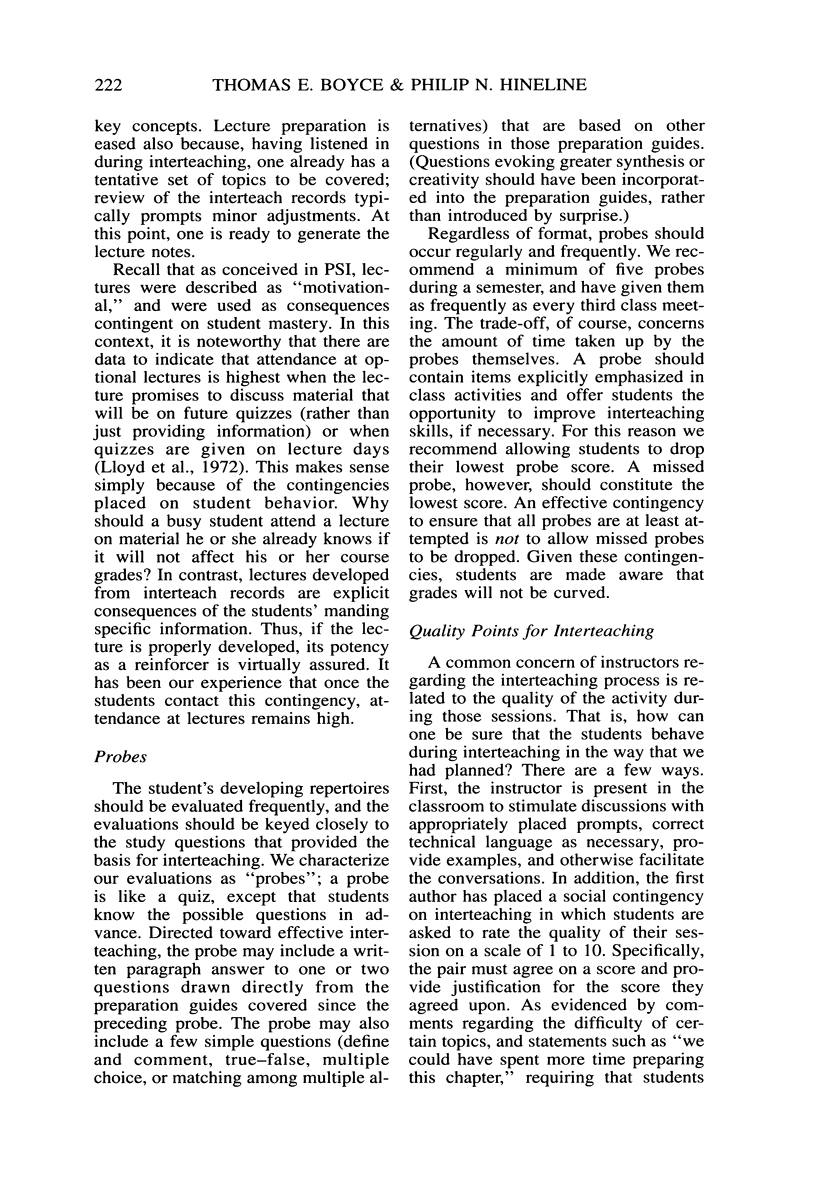
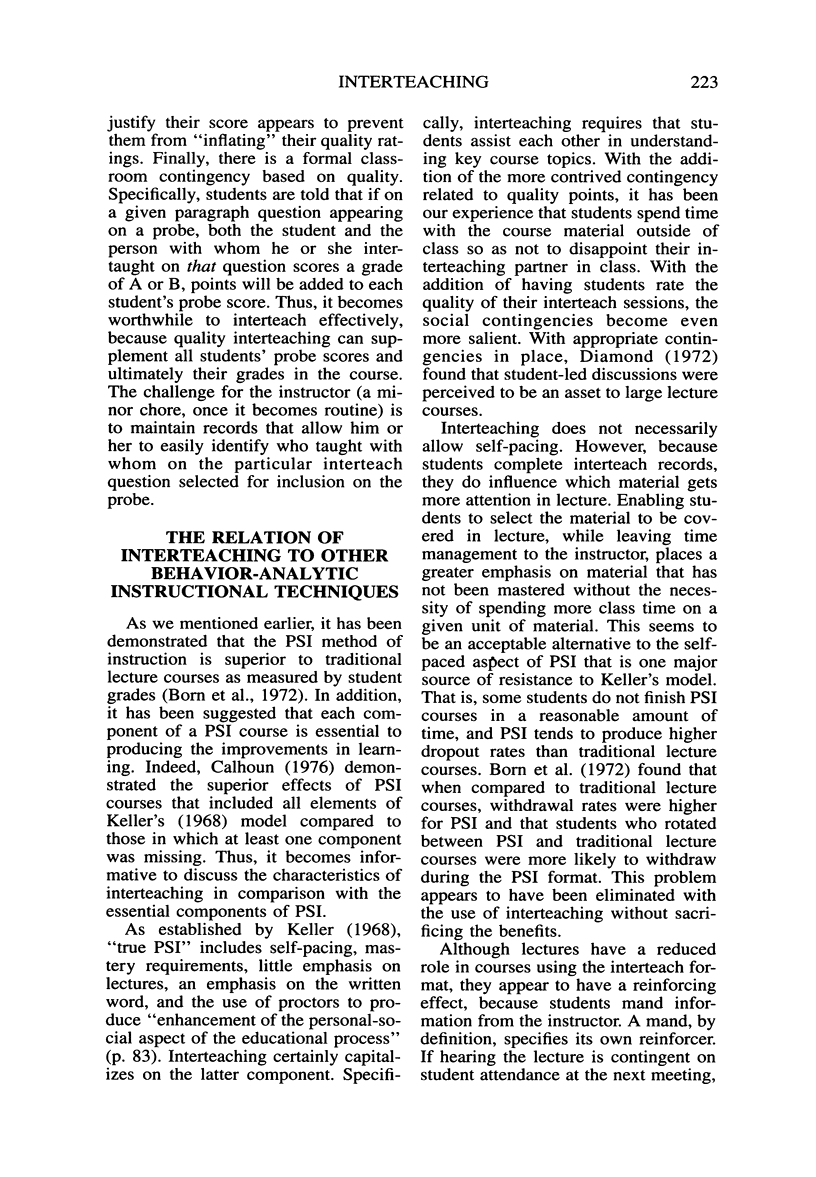
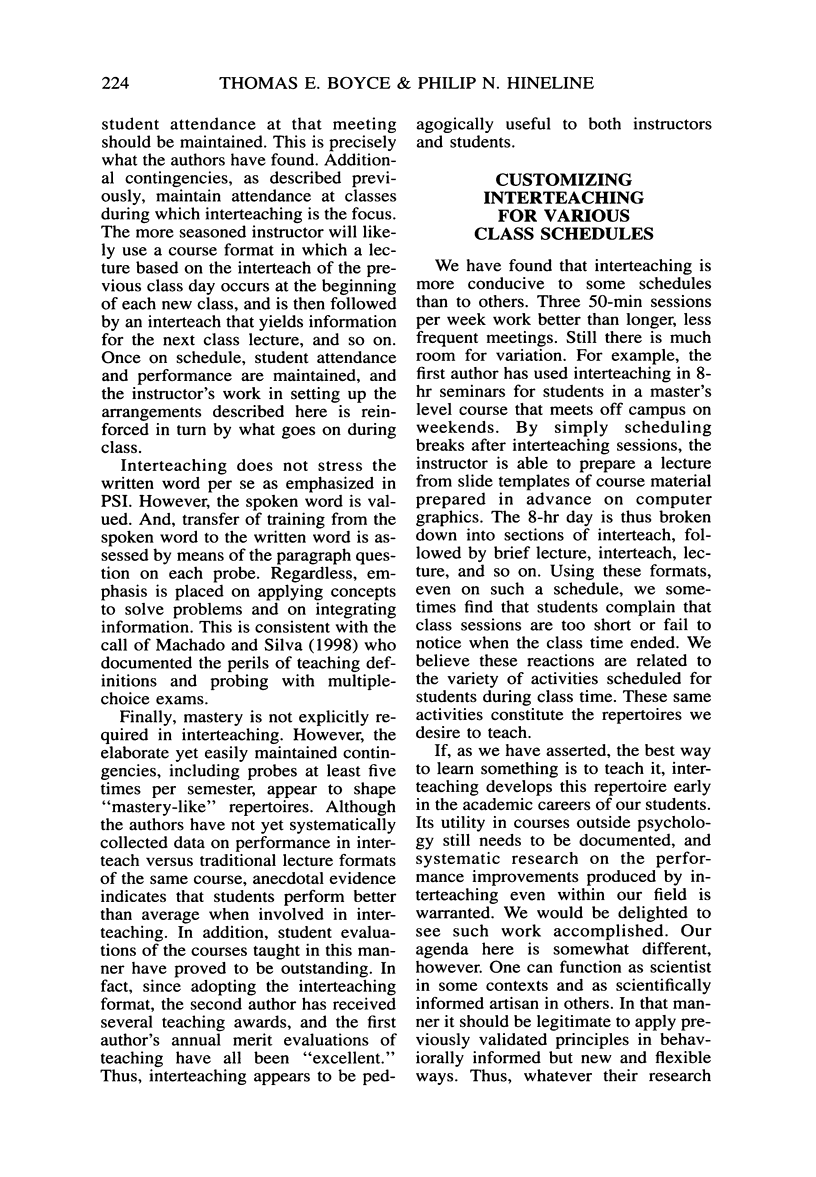
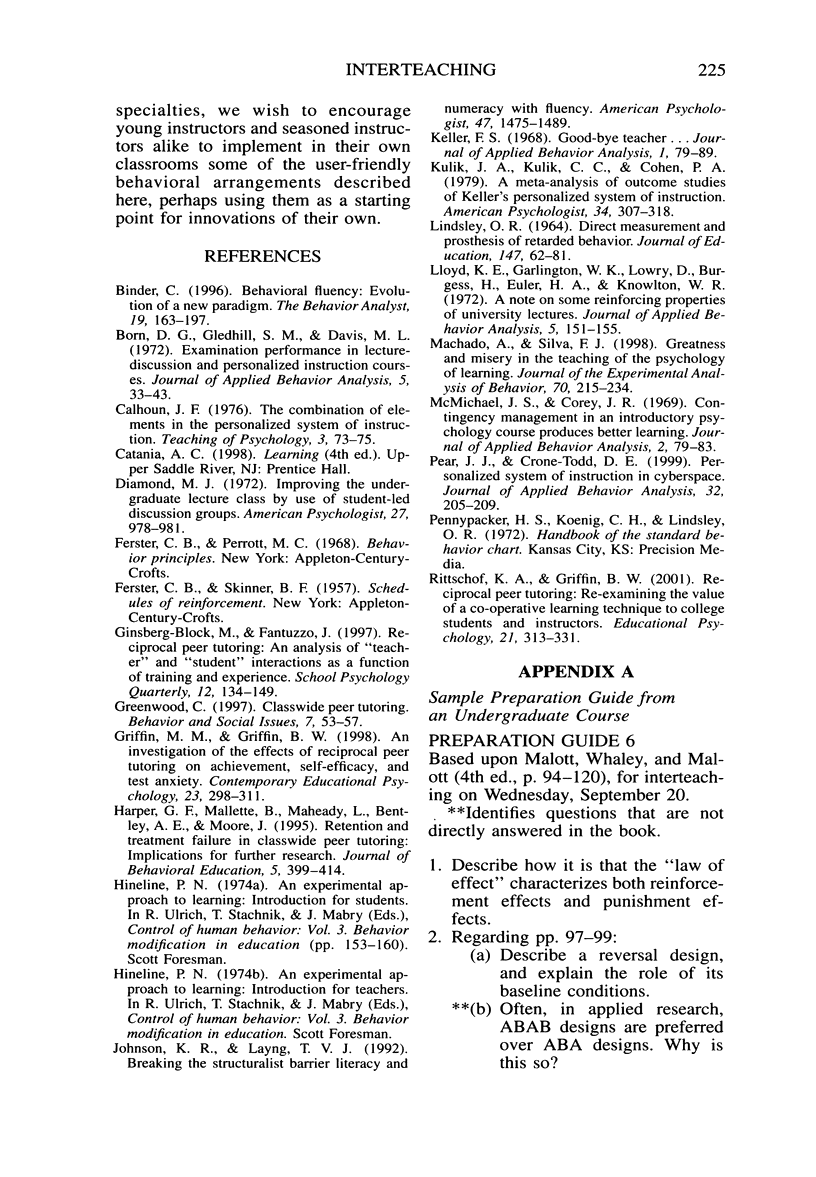
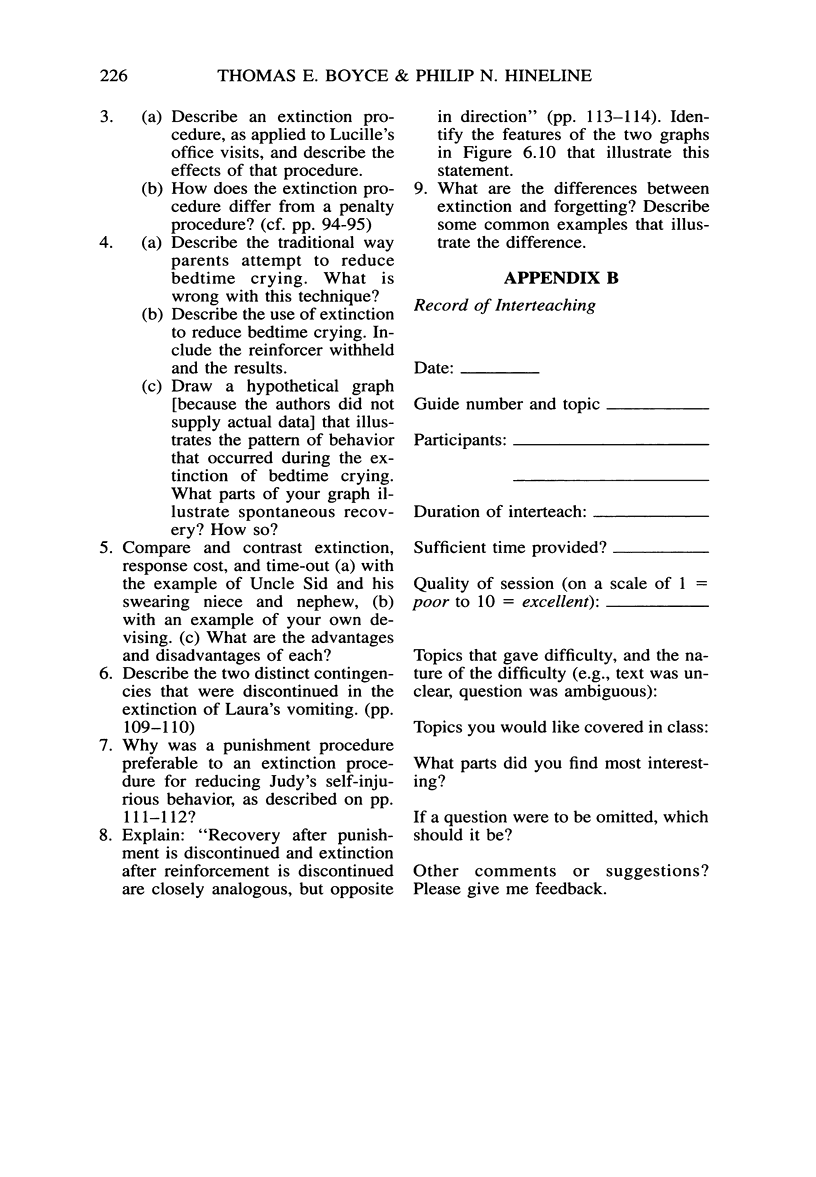
Selected References
These references are in PubMed. This may not be the complete list of references from this article.
- Binder C. Behavioral fluency: Evolution of a new paradigm. Behav Anal. 1996 Fall;19(2):163–197. doi: 10.1007/BF03393163. [DOI] [PMC free article] [PubMed] [Google Scholar]
- Born D. G., Gledhill S. M., Davis M. L. Examination performance in lecture-discussion and personalized instruction courses. J Appl Behav Anal. 1972 Spring;5(1):33–43. doi: 10.1901/jaba.1972.5-33. [DOI] [PMC free article] [PubMed] [Google Scholar]
- Griffin MM, Griffin BW. An Investigation of the Effects of Reciprocal Peer Tutoring on Achievement, Self-Efficacy, and Test Anxiety. Contemp Educ Psychol. 1998 Jul;23(3):298–311. doi: 10.1006/ceps.1998.0971. [DOI] [PubMed] [Google Scholar]
- Johnson K. R., Layng T. V. Breaking the structuralist barrier. Literacy and numeracy with fluency. Am Psychol. 1992 Nov;47(11):1475–1490. doi: 10.1037//0003-066x.47.11.1475. [DOI] [PubMed] [Google Scholar]
- Keller F. S. "Good-bye, teacher...". J Appl Behav Anal. 1968 Spring;1(1):79–89. doi: 10.1901/jaba.1968.1-79. [DOI] [PMC free article] [PubMed] [Google Scholar]
- Lloyd K. E., Garlington W. K., Lowry D., Burgess H., Euler H. A., Knowlton W. R. A note on some reinforcing properties of university lectures. J Appl Behav Anal. 1972 Summer;5(2):151–155. doi: 10.1901/jaba.1972.5-151. [DOI] [PMC free article] [PubMed] [Google Scholar]
- Machado A., Silva F. Greatness and misery in the teaching of the psychology of learning. J Exp Anal Behav. 1998 Sep;70(2):215–234. doi: 10.1901/jeab.1998.70-215. [DOI] [PMC free article] [PubMed] [Google Scholar]
- McMichael J. S., Corey J. R. Contingency management in an introductory psychology course produces better learning. J Appl Behav Anal. 1969 Summer;2(2):79–83. doi: 10.1901/jaba.1969.2-79. [DOI] [PMC free article] [PubMed] [Google Scholar]
- doi: 10.1901/jaba.1999.32-205. [DOI] [PMC free article] [Google Scholar]


